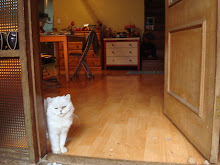Wednesday, January 16, 2013
Liberate an Article from Jstor in the Memory of Aaron Shwartz
The Archive Team, a group of online activists and progammers on Monday published a unique online memorial to late Web prodigy and pioneer Aaron Swartz, 26, who took his own life last week.
The Aaron Swartz Memorial JSTOR Liberator is a bookmarklet — a button that users can drag to the top of their Web browsers — allowing users to “liberate,” articles from JSTOR, the subscription academic aritcle database that Swartz accessed without authorization in late 2010 and early 2011 from a computer at Masschusetts Institute of Technology. Swartz downloaded 4.8 million articles, for which he was later charged by federal authorities in Massachusetts on 13 counts including computer fraud and wire fraud. Swartz’s family said in a statement that the federal government’s aggressive prosecution of Swartz in the case was a contributing factor to his suicide.
The Archive Team’s new JSTOR Liberator bookmarklet bypasses JSTOR’s user interface and allows users to commit an act of civil disobedience, downloading an article from JSTOR without a subscription. Notably, the only articles that can be taken are those already in the public domain.
Separately, other online activists have gone further in their own acts of disobedience with online law and protocol in memorializing Swartz, a co-creator of the RSS specification and a founder of a company that would become part of Reddit, among numerous other projects. Some hackers reportedly downed MIT’s website in honor of Swartz, while others posted the entire contents of the JSTOR database he hacked on The Pirate Bay file-swapping torrent website.
Swartz’s official memorial website, set up by his surviving family and partner, can be found here. Suicide prevention information can be found here.
CNN's interview (video.2) of Prof. Lawrence Lessig is here.




















 sarahinsouthkorea
sarahinsouthkorea
